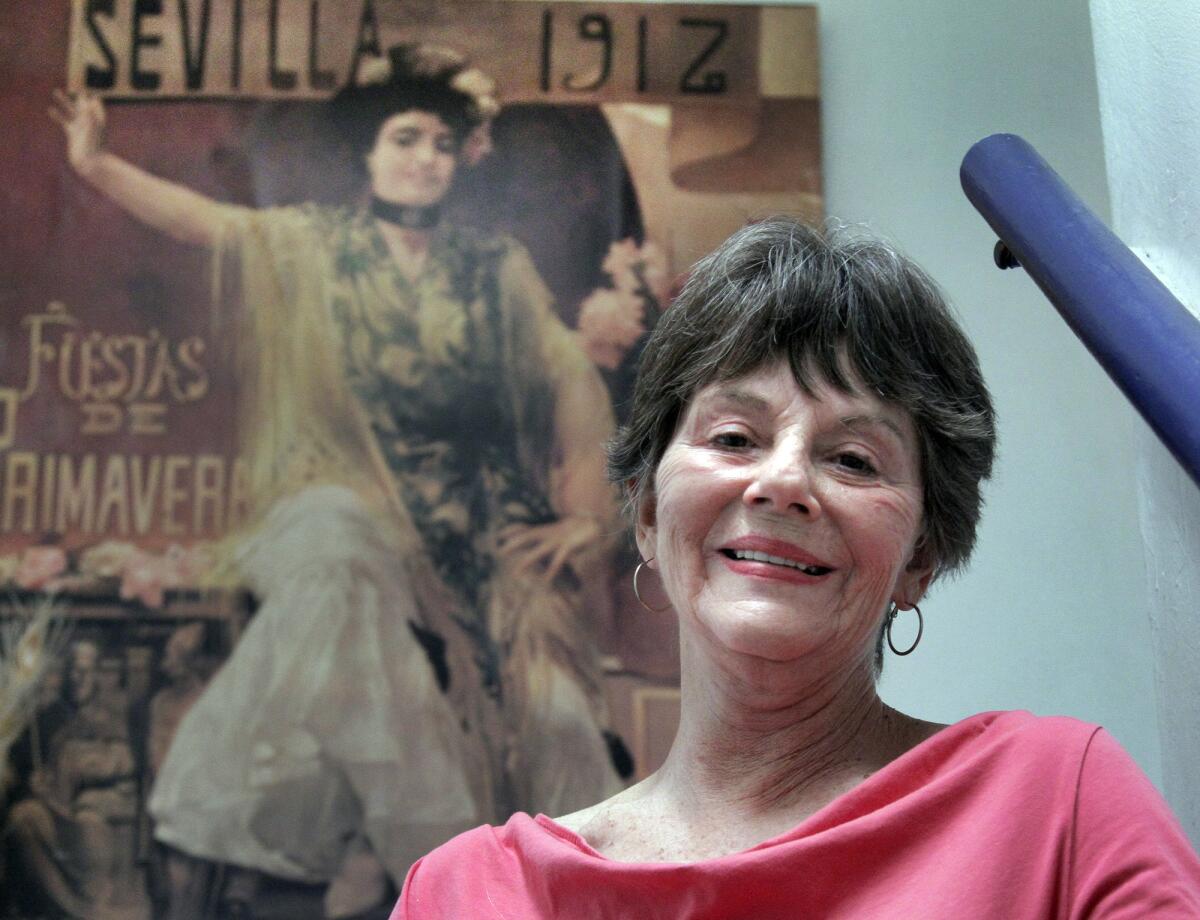Critic’s Notebook: Oregon Shakespeare Festival’s fearless vision could be L.A.’s model

The tourist shops dotting the streets of downtown Ashland may leave the impression that this picturesque town was designed by Martha Stewart in a chichi Western mood, but a weekend spent here at the Oregon Shakespeare Festival is a weekend spent in a kind of democratic utopia.
Bill Rauch, the co-founder of Cornerstone Theater Company and a leading figure in the Los Angeles theater scene before becoming OSF’s artistic director in 2007, has been true to his ambitious agenda of upgrading the theater’s artistic reputation, diversifying (in every respect) the programming and making new plays a central part of this destination theater drawing Shakespeare lovers from across the Pacific Northwest.
Rauch has that key ingredient too many artistic leaders lack these days: vision. Rather than accommodating present circumstances, he has been reimagining them. Under his auspices, OSF has been making a push to better reflect 21st century America in its demographic fullness while maintaining its strong connection to the bedrock of loyal patrons who represent the largely white, older, comfortably middle-class segment of the population that has been keeping nonprofit theater afloat in this country.
A central part of Rauch’s vision is “American Revolutions: The United States History Cycle,” which is the ongoing series of plays commissioned by OSF to explore watershed moments in American history. Robert Schenkkan’s “All the Way,” this year’s Tony winner for best play, was born from this cycle. And “The Great Society,” the second play in Schenkkan’s exploration of Lyndon B. Johnson’s presidency, though commissioned (and co-produced) by Seattle Repertory Theater, just had its world premiere here.
Can you imagine such a sweeping program — 37 plays in 10 years, none of them centered on neurotic navel-gazing! — being undertaken by the Mark Taper Forum or the Geffen Playhouse right now? Granted, it would be economically foolish (never mind logistically infeasible) to try to duplicate this on the same scale when these theaters are still dusting themselves off from the Great Recession.
But Washington, D.C., isn’t the only place where game-changing ideas are in short supply.
So often in my conversations with artistic directors I’m dismayed by their willingness to accept the status quo. If mindless musicals are what draws in the crowds, then mindless musical it will be — and then some. Box office becomes confused with artistic merit, making it easier to let fiscal expediency dictate taste.
True leaders alter the environment they operate in; they don’t simply react to it. But before they can reshape the lay of the land they must have a picture of how it can be improved and a conviction that the seemingly impossible isn’t beyond reach.
Budgets are invariably blamed by risk-averse managers, but it is leadership of the imagination that has been drastically curtailed in these straightened times. No wonder even dependable advocates of our nonprofit theaters are finding it harder to declare what’s worth fighting for.
Of the four shows I saw in Ashland, only one, Amanda Dehnert’s staging of Stephen Sondheim and James Lapine’s “Into the Woods,” left me rapturous. But a theater shouldn’t be judged by the number of rave reviews it tallies. An arts institution isn’t an ordinary business, and theatergoers aren’t to be confused with consumers filling out Yelp score cards.
“Family Album,” the new musical by Stew and Heidi Rodewald, was in disarray but enthrallingly so, with a provocative score making up for a chaotic book. For all its flaws, this latest project from the duo behind “Passing Strange” has the potential to enrich the American musical through the diversity of its musical palette and the uncategorizable artistry of Stew, a brilliant lyricist and musician with Los Angeles roots who, along with Rodewald, his partner from the cult band Stew & the Negro Problem, is helping to make the theater sound cool again.
My review of “Great Society” focused on the dramatic shortcomings of a play still gestating and will no doubt make another leap by the time it reaches Seattle Repertory Theatre, where it will be produced with “All the Way” this year. But even in its current state, there is profound value in Schenkkan’s historical recap and analysis of the possibilities and perils of deal-cutting politics.
Vitality, substance and artistic purpose — these are the qualities that earn the respect of critics and audiences alike. No one who truly loves the theater expects a home run every outing. Was Tony Taccone’s production of “The Tempest,” which I caught in my final evening in Ashland, one of the better revivals I’ve seen of this by turns ethereally beautiful and outrageously coarse late romance by Shakespeare? No.
But it was intelligently met. And though the comic-grotesque subplot involving Caliban, Trinculo and Stephano’s attempted island coup d’état dragged as it so often does and the acting chemistry between Prospero and his daughter Miranda wasn’t all that it could be, this “Tempest” was mounted with seriousness and novel style.
In my last report from OSF in 2009, I expressed concerns about the acting company. But I was heartened to see sharp work in supporting roles (for example, Al Espinosa’s superbly articulated Alonso in “The Tempest”), which can be a reliable indication of general health. And I was wowed by the entire ensemble of “Into the Woods,” which testified to the dexterity of Dehnert’s direction.
Let’s hope Rauch, whose cast for “The Great Society” was tightly unified even when individual performers weren’t perfectly suited to their parts, can keep striving for excellence in this area. Actors are the infantry of theater, and it is upon them that Rauch’s plans will succeed or fail.
No one gets it all right, though Nicholas Hytner, who will step down from his role as artistic leader of London’s National Theatre next year, comes close. During his much-lauded tenure, he has instituted the National Theatre Live cinema broadcasts, made available cheaper tickets, showcased the classics with toppling vigor (his productions of “Much Ado About Nothing” and “Othello” were two of the best Shakespeare revivals I’ve ever seen) and commissioned contemporary playwrights to confront the hot-button issues of the day.
The American theater could badly use a Hytner, though in New York, Oskar Eustis has reenergized the Public Theater and its Shakespeare in the Park offerings, Tim Sanford has made Playwrights Horizons the most exciting place in the country for new playwriting not waiting to be picked up by Broadway producers, and Sarah Benson has turned tiny Soho Rep into a space of innovative wonder.
Closer to home, Barry Edelstein has been resuscitating San Diego’s Old Globe after it was driven into a ditch by its previous leader. Sheldon Epps of Pasadena Playhouse doesn’t always get the credit he deserves, but has anyone done more to diversify a theater’s audience and programming? Even when the fare is not as artistically ambitious as I would wish, I love standing in the courtyard before openings and seeing an audience that better reflects this city.
Working on a shoestring, Stephen Sachs and Deborah Lawlor have built the Fountain Theatre into one of L.A.’s most indispensable venues. The same can be said for what John Perrin Flynn, working with Elina de Santos, has done at Rogue Machine, a theater that fills in the gaps of path-breaking contemporary drama left by the larger nonprofits’ timidity and fecklessness.
But L.A.’s leadership shortfall is nonetheless apparent. What’s urgently needed are men and women who can galvanize communities through their love of theater, who are able to relate to audiences as something more than a line on a balance sheet and who can situate their institutions within the civic and artistic fabric of the city as a whole. No one is an island, and the responsibility of an artistic director isn’t just to a board of directors. At stake is the larger cultural life of Los Angeles.
Visionaries need apply. Rauch is demonstrating just over the California border in Oregon that grand schemes and committed ideals aren’t financially reckless. Rather, they are the only way of ensuring a thriving future.
More to Read
The biggest entertainment stories
Get our big stories about Hollywood, film, television, music, arts, culture and more right in your inbox as soon as they publish.
You may occasionally receive promotional content from the Los Angeles Times.











